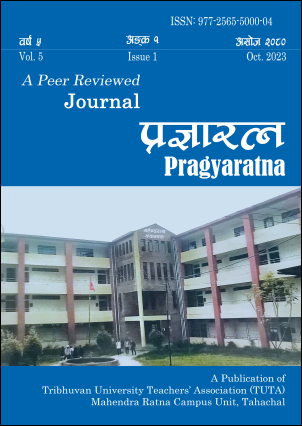Uncovering Ethnomathematics and Indigenous Epistemology: A Study of Chundara Culture
DOI:
https://doi.org/10.3126/pragyaratna.v5i1.59270Keywords:
culture, ethnography, ethnomathematics, indigenous epistemologyAbstract
The primary aim of this paper is to delve into the realm of ethnomathematical concepts and indigenous epistemology of Chundaras culture. To accomplish this, I employed a methodology that included in-depth interviews and participant observations conducted at various stages of the process, focusing on professionals selected for the study. My analysis encompassed a comprehensive exploration of the Chundaras' daily routines, their workplaces, their actions, methods, and the outcomes they produced, with particular attention to uncovering the hidden mathematical knowledge woven into various aspects of their lives. The study revealed that the Chundaras' approach to teaching and learning was marked by participatory and cooperative methods, where they acquired knowledge with the guidance of their parents. This aligns with Vygotsky's perspective, which views learning as a social activity through which shared mathematical understandings are collectively constructed. However, it became evident that the conventional pedagogy followed in schools stood in stark contrast to the indigenous knowledge of the Chundaras, appearing distant and disconnected from their unique ways of knowing and learning.




